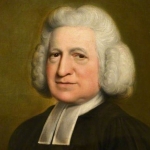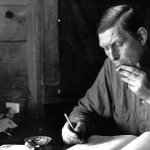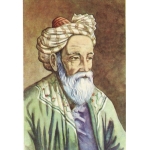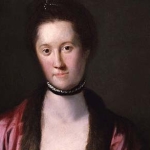The First Sestiad
(excerpt)
(excerpt)
On Hellespont, guilty of true love's blood,
In view and opposite two cities stood,
Sea-borderers, disjoin'd by Neptune's might;
The one Abydos, the other Sestos hight.
At Sestos hero dwelt; Hero the fair,
Whom young Apollo courted for her hair,
And offer'd as a dower his burning throne,
Where she could sit for men to gaze upon.
The outside of her garments were of lawn,
The lining purple silk, with gilt stars drawn;
Her wide sleeves green, and border'd with a grove,
Where Venus in her naked glory strove
To please the careless and disdainful eyes
Of proud Adonis, that before her lies;
Her kirtle blue, whereon was many a stain,
Made with the blood of wretched lovers slain.
Upon her head she ware a myrtle wreath,
From whence her veil reach'd to the ground beneath;
Her veil was artificial flowers and leaves,
Whose workmanship both man and beast deceives;
Many would praise the sweet smell as she past,
When 'twas the odour which her breath forth cast;
And there for honey bees have sought in vain,
And beat from thence, have lighted there again.
About her neck hung chains of pebble-stone,
Which lighten'd by her neck, like diamonds shone.
Would burn or parch her hands, but, to her mind,
Or warm or cool them, for they took delight
To play upon those hands, they were so white.
Buskins of shells, all silver'd, used she,
And branch'd with blushing coral to the knee;
Where sparrows perch'd, of hollow pearl and gold,
Such as the world would wonder to behold:
Those with sweet water oft her handmaid fills,
Which as she went, would chirrup through the bills.
Some say, for her the fairest Cupid pin'd,
And looking in her face, was strooken blind.
But this is true; so like was one the other,
As he imagin'd Hero was his mother;
And oftentimes into her bosom flew,
About her naked neck his bare arms threw,
And laid his childish head upon her breast,
And with still panting rock'd there took his rest.
So lovely-fair was Hero, Venus' nun,
As nature wept, thinking she was undone,
Because she took more from her than she left,
And of such wondrous beauty her bereft:
Therefore, in sign her treasure suffer'd wrack,
Since Hero's time hath half the world been black.
Amorous Leander, beautiful and young
(Whose tragedy divine Musæus sung),
Dwelt at Abydos; since him dwelt there none
For whom succeeding times make greater moan.
His dangling tresses, that were never shorn,
Had they been cut, and unto Colchos borne,
Would have allur'd the vent'rous youth of Greece
To hazard more than for the golden fleece.
Fair Cynthia wish'd his arms might be her sphere;
Grief makes her pale, because she moves not there.
His body was as straight as Circe's wand;
Jove might have sipt out nectar from his hand.
Even as delicious meat is to the taste,
So was his neck in touching, and surpast
The white of Pelops' shoulder: I could tell ye,
How smooth his breast was, and how white his belly;
And whose immortal fingers did imprint
That heavenly path with many a curious dint
That runs along his back; but my rude pen
Can hardly blazon forth the loves of men,
Much less of powerful gods: let it suffice
That my slack Muse sings of Leander's eyes;
Those orient cheeks and lips, exceeding his
That leapt into the water for a kiss
Of his own shadow, and, despising many,
Died ere he could enjoy the love of any.
Had wild Hippolytus Leander seen,
Enamour'd of his beauty had he been.
His presence made the rudest peasant melt,
That in the vast uplandish country dwelt;
The barbarous Thracian soldier, mov'd with nought,
Was mov'd with him, and for his favour sought.
Some swore he was a maid in man's attire,
For in his looks were all that men desire,—
A pleasant smiling cheek, a speaking eye,
A brow for love to banquet royally;
And such as knew he was a man, would say,
"Leander, thou art made for amorous play;
Why art thou not in love, and lov'd of all?
Though thou be fair, yet be not thine own thrall."
The men of wealthy Sestos every year,
For his sake whom their goddess held so dear,
Rose-cheek'd Adonis, kept a solemn feast.
Thither resorted many a wandering guest
To meet their loves; such as had none at all
Came lovers home from this great festival;
For every street, like to a firmament,
Glister'd with breathing stars, who, where they went,
Frighted the melancholy earth, which deem'd
Eternal heaven to burn, for so it seem'd
As if another Pha{"e}ton had got
The guidance of the sun's rich chariot.
But far above the loveliest, Hero shin'd,
And stole away th' enchanted gazer's mind;
For like sea-nymphs' inveigling harmony,
So was her beauty to the standers-by;
Nor that night-wandering, pale, and watery star
(When yawning dragons draw her thirling car
From Latmus' mount up to the gloomy sky,
Where, crown'd with blazing light and majesty,
She proudly sits) more over-rules the flood
Than she the hearts of those that near her stood.
Even as when gaudy nymphs pursue the chase,
Wretched Ixion's shaggy-footed race,
Incens'd with savage heat, gallop amain
From steep pine-bearing mountains to the plain,
So ran the people forth to gaze upon her,
And all that view'd her were enamour'd on her.
And as in fury of a dreadful fight,
Their fellows being slain or put to flight,
So at her presence all surpris'd and tooken,
Await the sentence of her scornful eyes;
He whom she favours lives; the other dies.
There might you see one sigh, another rage,
And some, their violent passions to assuage,
Compile sharp satires; but, alas, too late,
For faithful love will never turn to hate.
And many, seeing great princes were denied,
Pin'd as they went, and thinking on her, died.
On this feast-day—O cursed day and hour!—
Went Hero thorough Sestos, from her tower
To Venus' temple, where unhappily,
As after chanc'd, they did each other spy.
So fair a church as this had Venus none:
The walls were of discolour'd jasper-stone,
Wherein was Proteus carved; and over-head
A lively vine of green sea-agate spread,
Where by one hand light-headed Bacchus hung,
And with the other wine from grapes out-wrung.
Of crystal shining fair the pavement was;
The town of Sestos call'd it Venus' glass:
There might you see the gods in sundry shapes,
Committing heady riots, incest, rapes:
For know, that underneath this radiant flower
Was Danae's statue in a brazen tower,
Jove slyly stealing from his sister's bed,
To dally with Idalian Ganimed,
And for his love Europa bellowing loud,
And tumbling with the rainbow in a cloud;
Blood-quaffing Mars heaving the iron net,
Which limping Vulcan and his Cyclops set;
Love kindling fire, to burn such towns as Troy,
Sylvanus weeping for the lovely boy
That now is turn'd into a cypress tree,
Under whose shade the wood-gods love to be.
And in the midst a silver altar stood:
There Hero, sacrificing turtles' blood,
Vail'd to the ground, veiling her eyelids close;
And modestly they opened as she rose.
Thence flew Love's arrow with the golden head;
And thus Leander was enamoured.
Stone-still he stood, and evermore he gazed,
Till with the fire that from his count'nance blazed
Relenting Hero's gentle heart was strook:
Such force and virtue hath an amorous look.
It lies not in our power to love or hate,
For will in us is over-rul'd by fate.
When two are stript, long ere the course begin,
We wish that one should lose, the other win;
And one especially do we affect
Of two gold ingots, like in each respect:
The reason no man knows, let it suffice,
What we behold is censur'd by our eyes.
Where both deliberate, the love is slight:
Who ever lov'd, that lov'd not at first sight?




















Comment form: